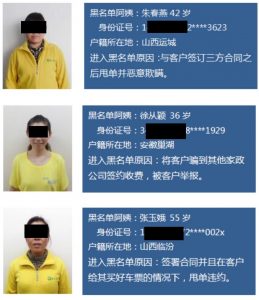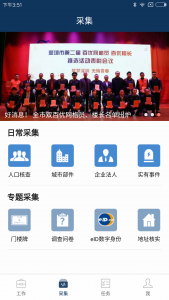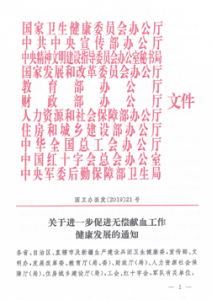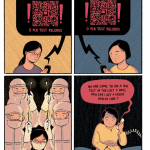1. Trust, Distrust and Credit Ratings in the Domestic Workers Labour Market

The social credit system is not one single score used in every single transaction. Rather, under the label of the social credit system several sector specific rating and black listing systems are created and expanded in collaboration between the government and the relevant industries. One example is the rating and blacklisting of domestic workers, a sector where trust becomes particularly important as relative strangers come into close contact with the employer’s family and private life. Middle class families hiring domestic workers have been frightened by recent examples of untrustworthy domestic workers – particularly a gruesome case of a nanny burning down the house of her employer. This perceived trust deficit along with the rapid growth in the domestic service sector has sparked a development of increased registration, rating and blacklisting in the industry.
The labour market for domestic workers in China has grown and diversified with an increasing number of companies acting as intermediaries, connecting rural labourers with prospective urban employers. We study how first local experimental systems and later systems integrated with the social credit system digitally register the trustworthiness of domestic workers. We thereby seek to understand how a changed infrastructure for trust mediation may reconfigure who has the right to categorize labour and change the very categorization of domestic labour. We show that the Chinese state plays an ever-increasing role in digital registration through the integration with the SCS, thereby creating a labour market where state policies to decrease urban-rural inequality may play an increasing role. However, the formalization of classification systems at the same time creates an infrastructure for more rigid discrimination. The standards for becoming blacklisted on the one hand appear more transparent than the subjective prejudices, personal networks and company owned blacklists from the pre-SCS era, but are at the same less negotiable and lack nuances. The researchers involved in this work are Qiuyu Jiang, Ane Bislev and Jesper Willaing Zeuthen
2. The Data Workers of Shenzhen

The grid data worker is a new profession in China, having grown and consolidated over the past few years. Marking this, in June 2020, the Chinese Central Government’s Ministry of Human Resources and Social Security (renli ziyuan he shehui baozhang bu, 人力資源和社會保障部) formally listed the job of “city management grid data worker” as a new profession in China. This work focuses on data workers in Shenzhen, who, since 2013, have been recruited to fill positions in the city’s Weaving the Net program (zhiwang gongcheng, 織網工程). The program, designed to manage the city’s migrant population, is both a local experiments with China’s Social Credit system and means of generating a daily set of data to expand smart city provisions. In this article, we approach the Weaving the Net program through data workers themselves. The researchers involved in this project are Hailing Zhao and Rachel Douglas-Jones
3. Blood and Credit

In 2019, following a number of local, city-scale initiatives connecting health and social credit, the National Health Commission of China announced a nation-wide plan to incorporate blood donation into the country’s emerging social credit system (SCS). The fusion puts both blood donation and social credit in question. The public sense-making which followed the 2019 announcement illuminates aspects of both practices as they were brought together in the newly published Notice. With the support of colleagues in the ETHOS Lab at the IT University of Copenahgen, we explored discussions on Sina Weibo, analysing the different responses and opinions expressed. Three draft articles are under development, one primarily focused on the methods and process by which we worked with the material from social media in the context of pandemic ethnography, presented at the IAMCR conference in Beijing in July 2022, a second that foregrounds the challenges to the SCS that the 2019 Notice prompted, and a third that contributes to anthropological studies of blood donation, presented at Hematopolitics in Leeds in July 2022. The researchers involved in this work are Mace Ojala, Qiuyu Jiang and Rachel Douglas-Jones
4. Opening the Blind Box

Travel to China in 2022 was a heavily digitally mediated experience. From WeChat groups to miniApps, QR codes and PCR test results, this article, under review in Commoning Ethnography, details the practicalities and implications of traveling to China to do fieldwork during the conditions of COVID-19. It examines the shifting meaning of 'access' within the anthropological canon, considering the shifting meaning of returning home and the lived experience of entering the country. Illustrated as part of a multi-modal collaboration with artist Nadiyah Suyatna, the piece conveys the ethnographic observations of the MDMP postocs Han Tao and Hailing Zhou, and is co-authored with PI Rachel Douglas-Jones.